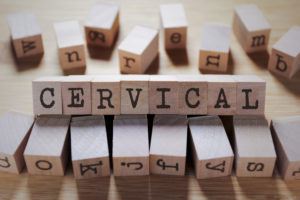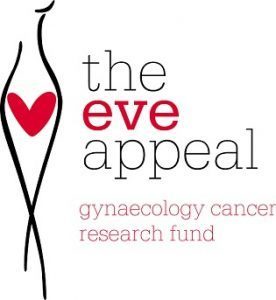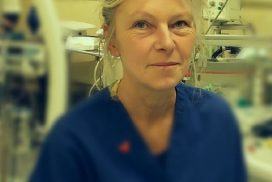Gynae Cancer Awareness Month
September is a really important month in the Sylk calendar. It’s Gynae Cancer Awareness month, a cause that’s really close to our hearts, thanks in part to our wonderful charity partners The Eve Appeal. There are five gynae cancers, which is something not everybody knows. Every year, 21,000 women are diagnosed with one of the five, which equates to 58 women every day. Sadly, 21 of those women will die. One of the big reasons for this is that women just don’t know that these cancers exist, and don’t know the signs and symptoms to look out for. So, by the time the cancer is caught, it’s often already reached an advanced stage.
Can you name them all? As awareness is so low, we thought we’d do a big round up of all five gynae cancers, so you can be aware of what to look out for.
Vulvar Cancer
The vulva is the external, visible part of a woman’s reproductive system, made up of the labia, clitoris, and Bartholin’s glands. Vulvar cancer can can affect any part of the vulva. It’s one of the rarest women’s cancers, with around 1000 cases diagnosed every year. VIN and lichen sclerosis can go on to become cancer, so if you have been diagnosed with either of these conditions it’s worth being extra careful. Surgery is usually needed to remove any cancerous cells or tumours.
So what should you look out for?
- Persistent itchiness and soreness
- Thick, raised or discoloured patches,
- A lump or swelling
- Changed moles
Do you regularly check your vulva? It’s important to understand what your vulva normally looks and feels like, so you can spot any changes early. Get to know the signs and symptoms, and get to know your normal.
Vaginal Cancer

- Unusual bleeding
- Pain during sex
- Persistent vaginal pain
- Lump inside the vagina
Radiotherapy is the usual treatment, though some women will need surgery to remove part or all of the vagina. Vaginal dryness is a common, often painful side effect of radiotherapy, so keep a gentle, pH friendly lubricant like Sylk at hand to combat any symptoms.
Cervical Cancer

Symptoms to look out for are
- Abnormal bleeding e.g. heavier than usual periods, or bleeding between periods
- Pain or bleeding during sex
- Unusual or bloody discharge
Many women avoid their smear tests because they find them uncomfortable. If vaginal dryness makes smears uncomfortable or painful, ask your nurse to use a little Sylk on the sides of the speculum to help keep you comfortable.
Womb Cancer

Women should be on the lookout for
- Unusually heavy bleeding during a period
- Unusual or blood stained discharge
- Bleeding between periods
- Any bleeding after menopause
Ovarian Cancer

- Persistent abdominal pain and bloating
- Sudden prolonged change in bowel habits
- Feeling full very quickly
- Nausea
As these symptoms can be mistaken for other less serious issues, it’s important to keep them in mind. If you’re given a diagnosis that just doesn’t feel right, it’s your right to seek a second opinion.
Vaginal Dryness- an unwanted side effect

Ask Eve
Have you or a friend or loved one been affected by gynae cancer? The Eve Appeal run Ask Eve, a nurse led cancer information helpline for women and their families. Whether you’ve received a diagnosis, are worried about a symptom, or are worried about a friend or relative, you can Ask Eve for advice on what to do next.
A word from The Eve Appeal

We were set up to save women’s lives by funding ground-breaking research focused on developing effective methods of risk prediction, earlier detection and developing screening for these women-only cancers. Our charity has grown and developed in parallel with our core research team, the Department of Women’s Cancer at University College London (UCL), taking place in 31 institutions across 15 countries. We have played a crucial role in providing seed funding, core infrastructure funding and project funding in addition to campaigning to raise awareness of women-specific cancers.
The world-leading research that we fund is ambitious and challenging but our vision is simple: A future where fewer women develop and more women survive gynaecological cancers.”
You can find out more about The Eve Appeal, including how to contact their wonderful Ask Eve information service by visiting their website.





